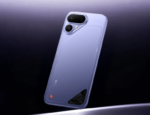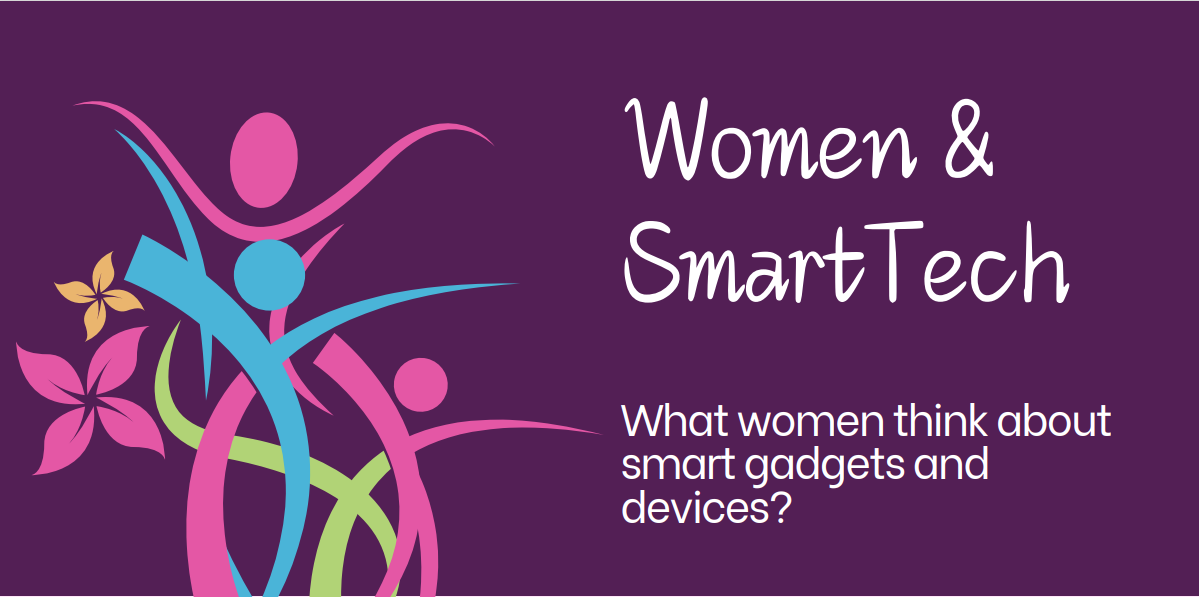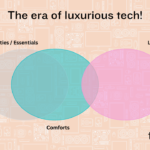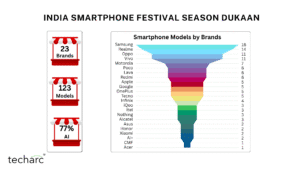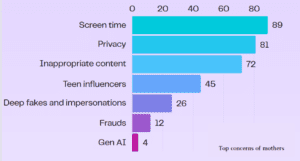While appreciating the breadth in colours and designs in categories like smartphones and wearables, women expect the smart devices ecosystem to launch products relatable to their persona and needs.
On the eve of International Women’s Day 2024, Techarc today released consumer insights based on a survey done among 1,150 women across the country. The findings are consolidated in an infographic. (Download a high-resolution PDF of the infographic)
Sharing the key findings of the survey, Faisal Kawoosa, Chief Analyst and Founder, Techarc said, “While technology remains gender agnostic, in personal tech space there is desire as well as scope to introduce product lines for men and women separately. This can be based on hardware differentiation as well as the software and app defined use cases that could add more value to the respective users.”
“The smart tech ecosystem needs to leverage AI and other such technologies at both cosmetic layer as well as fundamental changes in the overall value proposition. The designs, colours, materials and applications that go in these devices need to meet the changing expectations of women,” opined Faisal.
Key Takeaways and Insights
- Smartphones – In this category, women do acknowledge some level of relatability with several colour options, designs, and form factors (specifically flip). They expect deeper personalisation and customisation which they can change from time to time, depending on their moods and preferences.
- Wearables – In this section, the smart ring is generating growing interest among women. In smart watches, while they do like the availability of women centric applications, the trend of large or bulky dials isn’t something they are comfortable with.
- Laptops – This is one such category of smart devices where women feel there is hardly anything done so far for them. With the increasing participation of women in professional pursuits as well as increased usage in capacity as students, they want the laptop makers to bring more feminine designs along with making lighter devices available in mass segments.
- Smart TVs – Most of the women do not find Smart TVs convincing or appealing. Also, they find Smart TVs a complicated device to operate.
- Smart Home Appliances – The awareness and education about the smart elements of home appliances is lowest among women, who are largely their primary user. Women are unaware of most smart functions in the devices, but therefore they hardly use any of the smart and connectivity features of such appliances and gadgets like ovens, refrigerators, washing machines, etc.
Future Outlook
Women do expect that the smart tech ecosystem will collaborate further in this direction and make gadgets and devices keeping them in mind. Women are increasingly not only becoming consumers but primary users of these smart devices whether in home, on-the-go or at workplace. They expect personalisation, choice, portability among key things being offered by these devices.
AI should enable smart tech makers to allow users personalise various devices based on their digital persona defined by the usage patterns and cases. We expect AI to add a substantial layer of features and applications that will further help in meaningful personalisation and customisation for women as well as other users in the future.
About the survey – The findings are based on a consumer survey done by Techarc covering 1150 female respondents. The respondents dwell in metro / non-metro cities spread across the country. The ages of respondents covered ranged between 18-50 years. By profession 650 women were working while the remaining 500 were home makers.



